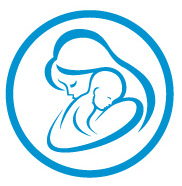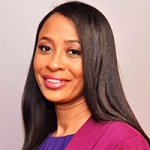 IBCLC Detailed Content Outline: Psychology, Sociology, and Anthropology Focused CERPs - Section V
IBCLC Detailed Content Outline: Psychology, Sociology, and Anthropology Focused CERPs - Section V
Access CERPs on Psychology, Sociology, and Anthropology for the IBCLC Detailed Content Outline recertification requirements. Enjoy convenient on-demand viewing of the latest Psychology, Sociology, and Anthropology focused IBCLC CERPs at your own pace.

Breastfeeding and Cranial Nerve Dysfunction – the what, who and why of Cranial Nerve Dysfunction in the newborn to precrawling baby

Michelle has been a pediatric neurodevelopmental Occupational therapist specializing in precrawling infants for over 26 years. She has specialty certifications and training in lactation, manual therapy, and pre and peri natal psychology. Michelle has specialized in optimal cranial nerve function and oral restrictions, with an emphasis on infant movement, innate biological imperatives and human potential, providing novel curriculums, support and resources for both professionals and parents. She enjoys collaborating and working in teams for babies and families going through the tethered oral tissues release process.
Topic: Breastfeeding and Cranial Nerve Dysfunction – the what, who and why of Cranial Nerve Dysfunction in the newborn to precrawling baby - [View Abstract]
Topic: Compensatory vs Novel Movements: 3 Keys for Babies With Tongue, Lip and Buccal Restrictions - [View Abstract]
Topic: Interoception: Beyond the Homunculus....The Real Sixth Sense and Its Primary Function as Sensory Input to the Autonomic Nervous System - [View Abstract]
Topic: The Vagus Nerve: Branchial Motor / Special Visceral Efferents: The Pharynx, Larynx, Soft Palate and one tiny tongue muscle - [View Abstract]
Topic: TummyTime!™ : A Therapeutic Strategy for Parents and Babies - [View Abstract]
Cranial Nerve Dsyfunction, CND, is a term used to describe a disruption, dysregulation or dysfunction in one or more cranial nerves in the precrawling period. Cranial Nerves are twelve, paired nerves, ten of which originate in the brainstem. They mediate all incoming sensory input and also help regulate, move and maintain the health of the muscles of the face, head, neck, jaw, tongue and throat. From sensing mother’s smell, touch, taste to rooting, latching and coordinating suck/swallow/breathe patterns, optimal cranial nerve function is paramount. Lactation consultants need to be able to identify CND, identify a couple of treatment interventions and know when to refer to appropriate health care professional such as OT, PT, Speech, or Manual Therapist/Bodyworker. CND explains how many tongue/lip tied babies who have had a frenotomy continue to struggle significantly with the activities and movements of optimal breastfeeding. Michelle will cover the basics of CND, a simple classification system, and her 4 Principle Functional Movement Protocol, which she states can optimize cranial nerve function in the precrawling baby and improve breastfeeding outcomes.
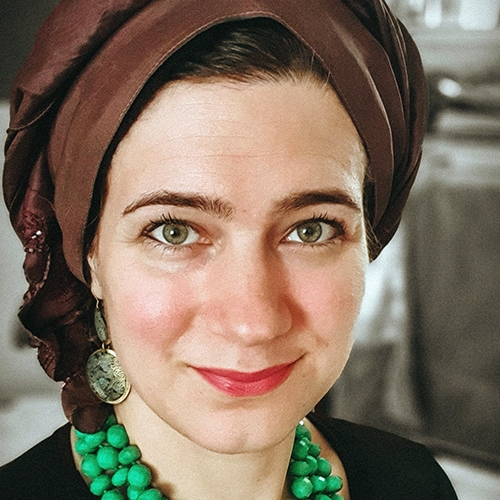
"Help! Breastfeeding Makes Me Feel Bad, Sad or Mad": Helping Breastfeeding Mothers Struggling With Negative Emotions

Zainab Yate is a Biomedical Ethicist, with a specialist interest in infant feeding. Zainab is Vice Chair and named qualitative lead on a paediatric flagged Research Ethics Committee Panel for the Health Research Authority (HRA) in the UK, reviewing research protocols for over a decade. Zainab's previous working background is in Public Health and Commissioning the National Health Service (NHS) in the UK. She had also been a volunteer breastfeeding peer supporter with the NHS for a number of years, is the owner-author of the resource site for mothers and healthcare practitioners on Breastfeeding / Nursing Aversion and Agitation and author of "When Breastfeeding Sucks".
Topic: Breastfeeding / Nursing Aversion and Agitation (BAA) in breastfeeding mothers - [View Abstract]
Topic: Research Ethics & Infant Feeding: How to Utilise the Four 'D's of a Brief Assessment - [View Abstract]
Breastfeeding can trigger particular negative emotions and intrusive thoughts, these can include experiencing the phenomenon of breastfeeding/nursing aversion and agitation, or having the medical condition of Dysphoric Milk Ejection Reflex. Mothers. These don't preclude having postnatal depression or postnatal mood disorders.
Understanding the nuances and variations in all these conditions and symptoms can lead to better referral, intervention and treatment for those struggling with negative emotions associated with breastfeeding. Being prescribed antidepressants when you have D-MER or Aversion will not always alleviate the symptoms or help the situation.
We cover the literature about when breastfeeding can make someone feel bad, sad or mad, and what we know can help alleviate these negative emotions so as a lactation specialist or health care professional you will become well adept at assessing, referring, signposting, supporting and treating those who struggle. The information and skills you will gain will particularly help in complex cases or cases where there seems to be a missing link.
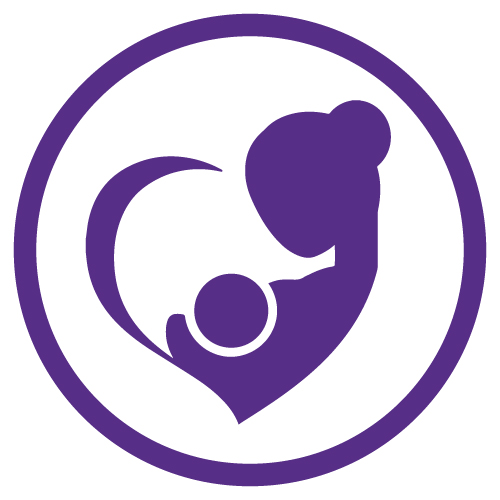
View Details / Enroll

#thestruggleisreal: How to Build Understanding and Empathy with Millennial Families

Amber McCann is an international board certified lactation consultant (IBCLC) whose current interests involve connecting with new families through social media channels and teaching others in her profession to do the same. After maintaining a busy private practice in the Washington DC suburbs and working with an innovative model of care at the Breastfeeding Center of Pittsburgh, she now provides marketing and communications guidance for a number of birth and breastfeeding organizations. When she’s not furiously tweeting or watching terrible reality TV, you can find her eating her way through all of the fantastic restaurants in her new hometown of Pittsburgh and snuggling her three children.
Jeanette McCulloch, IBCLC, has been combining communications work and women’s health advocacy for more than 20 years. She is a co-founder of BirthSwell, which is improving infant and maternal health - and the way we talk about birth and breastfeeding - through strategic communications and social media. She is a board member of Citizens for Midwifery, and is active in local, statewide, and national birth and breastfeeding advocacy projects.
In this presentation, we will learn about the unique values, communication styles, learning preferences, and buying habits of Millennials. We’ll also address some common friction points between Millennials and other generations, with the goal of developing a self-awareness that can help us provide the best possible care.
We will also learn how to apply our knowledge of Millennial values and communications styles to understanding how we can best find Millennials as clients, teach in the way they best learn, and provide information and care in a way that reaches Millennials where they are at.
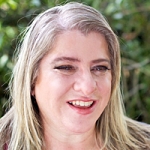
1000 Days in Gap City: Exploring the Relationship Between the Breastfeeding Gap and the Word Gap

Dia has written and/or edited over a dozen books for adults and children. Her passions in life include promoting the concepts and practices of attachment parenting, breastfeeding and safe infant sleep. She is founder and president of two publishing houses—Platypus Media and Science, Naturally! Their books have won numerous awards and have been translated into Spanish, Dutch, Hebrew, Chinese, Russian, Turkish, French and Korean. Dia has led workshops at healthcare, education and parenting conferences across the country. She is the mother of three adult children and lives in Washington, DC.

View Details / Enroll
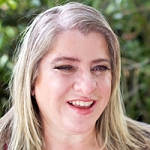
View Details / Enroll
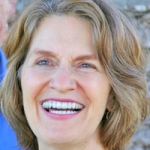
12 Guiding Principles for Nurturing Human Potential: Effects of Prenatal and Birth Experiences Over the Life Span

Marti Glenn, PhD, is Clinical Director of Quest Institute, offering professional trainings and intensive retreats to help adults heal adverse childhood experiences and trauma. A pioneering psychotherapist and educator, Marti is founding president of Santa Barbara Graduate Institute, known for its graduate degrees in prenatal and perinatal psychology, somatic psychology and clinical psychology. In her clinical work and trainings, Marti emphasizes the integration of the latest research in behavioral epigenetics, Polyvagal Theory and affective neuroscience with attachment, early development, and trauma. She co-produced the broadcast quality documentary, Trauma, Brain and Relationship: Helping Children Heal with Daniel Siegel and Bruce Perry and has appeared in such documentary films as What Babies Want; What Babies Know; Reducing Infant Mortality and Improving the Health of Babies. She is the recent recipient of the Verny Lifetime Achievement Award in Prenatal and Perinatal Psychology and Health. Marti is a frequent speaker at conferences worldwide.
The latest developments in science, medicine and psychology suggest that the most critical formative period for human development is between pre-conception and baby’s first postnatal year. This is the most “sensitive and critical period” in the establishment of life patterns in all domains: physical, mental, emotional, relational, and spiritual. For over three decades, prenatal and perinatal psychology has been studying our earliest development from pre-conception through birth and bonding. The field’s research and clinical experience have established the fact that our earliest experiences form the foundation of our sense of self, our capacity to relate to others and our resiliency in life. This work has also effectively mapped key nodal points of development that need to be met in order to promote healthy life patterns. This presentation will outline 12 principles from this research and clinical practice that will help guide practitioners in understanding and applying the fundamentals in their work.
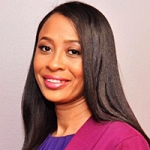

Kiddada Green is the founding executive director of Black Mothers’ Breastfeeding Association, co-‐creator of Black Breastfeeding Week, founding member of the National Association of Professional and Peer Lactation Supporters of Color, lead consultant for the First Food Friendly Community Initiative, and an esteemed member of the inaugural class of the W.K. Kellogg Foundation’s Community Leadership Network Fellowship Program. She is committed to supporting families, and training maternal child health professionals on culturally appropriate breastfeeding support. As an expert in community-‐centered approaches, she put forth recommendations for The U.S. Surgeon General’s Call to Action to Support Breastfeeding, has been featured in Ebony Magazine, and is a program reviewer for the American Public Health Association. She is a published writer for Breastfeeding Medicine and an avid learner. Kiddada holds a Bachelor’s Degree from Michigan State University and a Master’s Degree in the Art of Teaching from Oakland University.
This presentation provides clear and concise methods for maternal-‐child-‐health professionals and home visiting programs to become active supporters of breastfeeding families. The information shared is both for the novice and the experienced. Learn ways to build partnerships, improve advocacy and set organizational policies that are supportive of increased breastfeeding rates.

View Details / Enroll

A Dairy-free Mediterranean Diet and the Impact on Colic and Allergy in Infants Receiving Human Milk

Joanna Nawfal is a board-certified lactation consultant, a childbirth educator, a hypnobirthing instructor, and a certified baby massage instructor, with 15 years of experience in the field of maternal child health and a Masters of Science in Nursing.
Joanna is passionate about helping mothers and babies in their breastfeeding journey, and was inspired to start this path after having difficulties 10 years ago, breastfeeding her first child, Adam.
She loves teaching expecting parents about the beauty of birth, normal newborn behavior, and is exceptionally passionate about nutrition for mothers as she believes that we can always find cure in food.
Joanna enjoys doing home visits and clinic consultations for breastfeeding. She also offers birth preparation classes in her country, Lebanon, where she lives with her husband and two children. Her favorite activity is getting lost in Lebanon’s bountiful nature where the mountains and the sea are in close proximity. To Joanna, Lebanon, is the most beautiful country in the world.
Colic and allergy symptoms are problems commonly encountered in newborns exclusively receiving human milk, and are thought to be triggered by inflammatory responses in the gut. Maternal diet, especially cow’s milk intake, has been associated with infantile colic and allergies, but no previous studies have examined the effect of a Mediterranean diet. Thus, this new research aims to investigate whether maternal adherence to a dairy-free Mediterranean diet, known for its anti-inflammatory properties, reduces colic and allergy symptoms in infants exclusively fed human milk. This presentation will discuss the methodology of this recent study and present the results of the Mediterranean diet on allergy symptoms and average daily crying of infants.
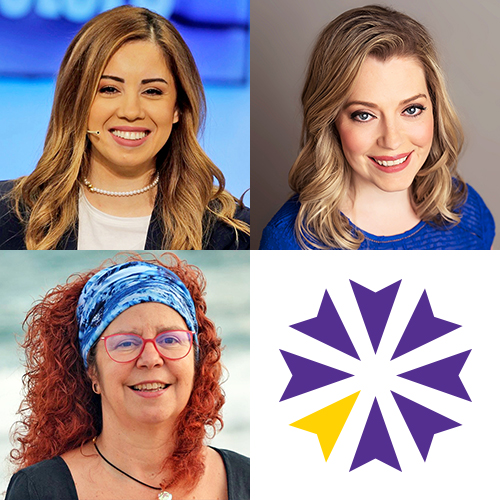
View Details / Enroll
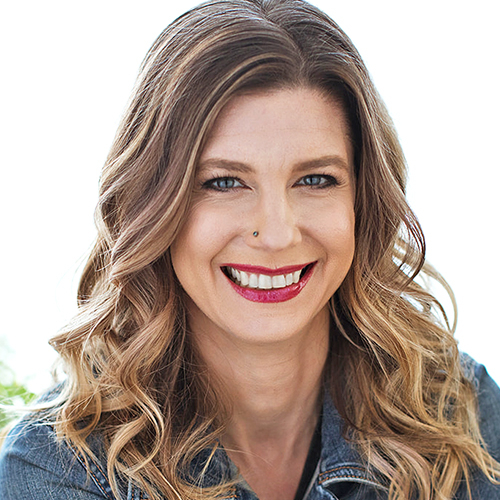
A Neuroscience-Based Paradigm Shift for Parenting Kids with Dysregulated Behaviors

Robyn Gobbel, LMSW-Clinical, has over 15 years of practice in family and child therapy experience, specializing in complex trauma, attachment, and adoption. Robyn is a therapist, trainer, and consultant who recently relocated to Grand Rapids, MI from Austin, TX.
Robyn's diverse clinical training includes EMDR (including EMDR adapted for children with attachment trauma), Somatic Experiencing, Theraplay, Trust Based Relational Intervention®, Circle of Security Parent Educator, The Alert Program® and Yogapeutics Aerial Yoga Level 1 Teacher Training. Robyn has integrated these training modalities with a foundation of attachment theory and the relational neurosciences to create an attachment-rich, sensory-sensitive, and relational neurosciences supported healing environment for children and families.
Robyn consults, teaches, and trains extensively throughout the US, including previously as an instructor for the Foundations of Interpersonal Neurobiology Certificate Program at Portland Community College. She was an instructor with the Adoptive & Foster Family Therapy Post-Graduate Certificate Program and has served on the working board of the Global Association for Interpersonal Neurobiology Studies (GAINS).
Research emerging from Relational Neuroscience, including polyvagal theory, regulation theory, and the neurosequential model of development, has shifted our understanding of the origins of behavior. When parents, caregivers, and child development professionals are armed with the latest science about what behavior really is, they increase their capacity for connecting with dysregulated behavior in a way that promotes positive growth and development of the relational, social, and behavioral brain of the child. This workshop will briefly summarize the latest research from the relational neuroscience and then move into practical interventions that will help caregivers soothe difficult behaviors while promoting attachment, regulation, and stress resilience.
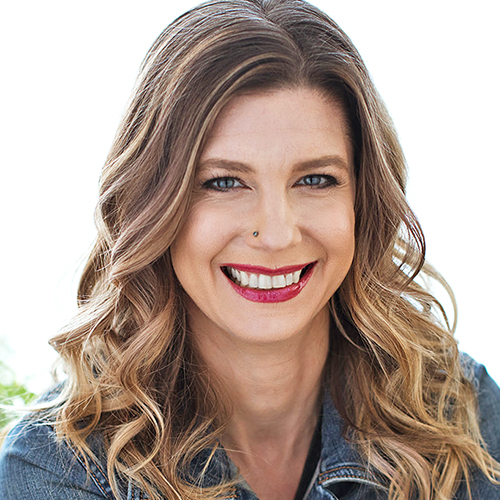
View Details / Enroll
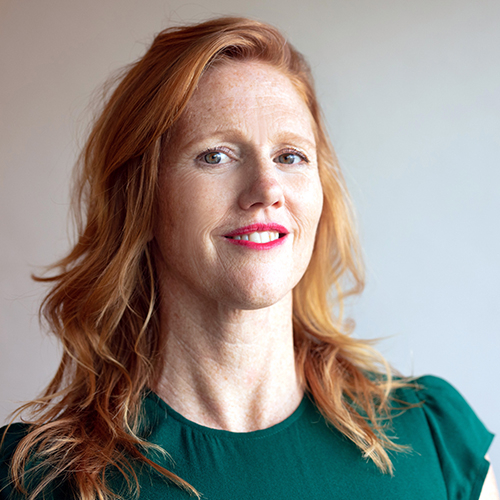

Kimberly is a Sexological Bodyworker, Somatic Experiencing trauma resolution practitioner, Structural Integration practitioner, culture worker, and single mom. She specializes in helping women heal from birth injuries, gynecological procedures and sexual boundary ruptures. She is the author of the early mothering classic The Fourth Trimester: Healing Your Body, Balancing Your Emotions and Restoring Your Vitality and Call of the Wild: How We Heal Trauma, Awaken Our Own Power and Use It for Good- a feminist nervous system treatise, as well as the newly released Reckoning, co-authored with Stephen Jenkinson. She is the host of the Sex Birth Trauma podcast.
Somatic Experiencing is a body-oriented therapeutic model that supports the regulation of the autonomic nervous system. Reframe your approach to the fourth trimester by learning how to work with your client’s physiology to promote healing. Learn more about the four domains of health that influence the postpartum experience, the five cross-cultural universal postpartum needs and the five channels of inner and outer experience, as a tool to help clients get out of looping cycles of shame and blame.
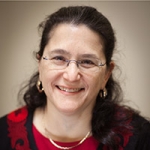

Naomi Bar-Yam, PhD, ACSW, has been working in maternal and child health for over 30 years as an educator, researcher, advocate, and writer. She is the immediate past president of the Human Milk Banking Association of North America (HMBANA) and the founding director of Mothers’ Milk Bank Northeast, which provides safe donor milk to hospitals and families throughout the northeastern US. An expert on access to perinatal health care and policies that support breastfeeding, she has been a consultant to the Centers for Disease Control (on a panel that created “The CDC Guide to Breastfeeding Interventions”), to the United States Breastfeeding Committee (developing an issue paper addressed to CEOs and legislators on breastfeeding and the workplace), and to the March of Dimes (developing educational material for women and families who are medically and socially vulnerable to high-risk pregnancy). She also developed a curriculum for hospital personnel about combining breastfeeding with their work. She reviews articles submitted to the Journal of Human Lactation, Breastfeeding Medicine, and other publications related to breastfeeding, milk banking, and access to perinatal child care. As Executive Director of Mothers’ Milk Bank Northeast, she is thoroughly versed in the technical, procedural, and ethical aspects of milk banking. She often speaks at professional conferences, hospital staff trainings, and grand rounds about milk banking and breastfeeding policies.
Topic: Ethical Concerns in Human Milk Exchange - [View Abstract]
Topic: Getting Milk to Babies: Social, medical, economic and commercial forces - [View Abstract]
Topic: The Whys and Hows of Using Banked Donor Milk - [View Abstract]
This talk uses research literature and hospital policies and programs to explore ways for families of babies in the NICU to be meaningful and active members of the NICU care team. We will look at a global snapshot of prematurity; define what a team is and who is on the NICU care team; and discuss the short- and long-term goals of the NICU care team, as well as many tools and strategies that team members and the team as a whole have at their disposal to reach those goals. Can be adapted for US or global audiences.

View Details / Enroll






